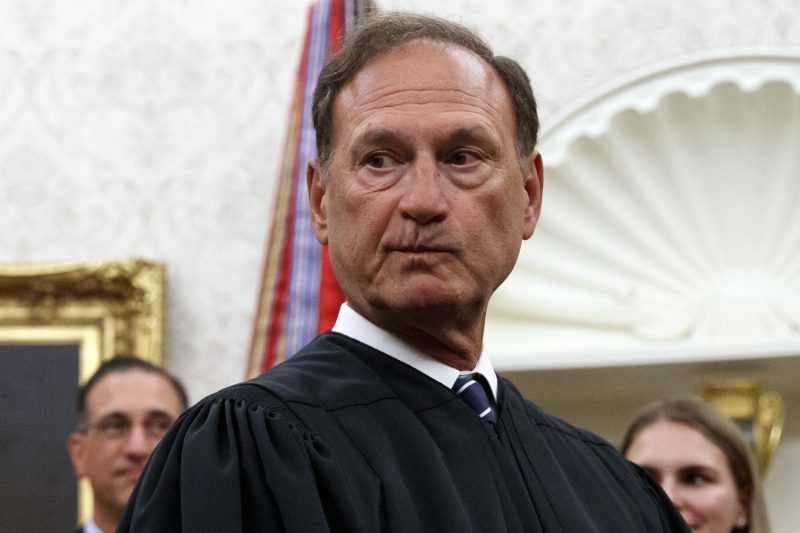In a recent turn of events within the realm of the legal system, Supreme Court Justice Samuel Alito has made a decision that has sparked various viewpoints and discussions among legal experts, scholars, and the general public. Justice Alito has determined that he is sufficiently impartial in his judicial role, despite criticisms and differing opinions that have been raised regarding his perceived impartiality.
The notion of judicial impartiality is a cornerstone of the legal system, as it ensures that judges make decisions based on the law and facts presented before them, rather than personal biases or external influences. In this context, Justice Alito’s assertion that he is sufficiently impartial begs the question of how impartiality is defined and evaluated in the judiciary.
One perspective on judicial impartiality suggests that it encompasses not only the absence of bias or prejudice but also the appearance of neutrality in the eyes of the public. Judges are expected to uphold the integrity and credibility of the judicial process by maintaining a sense of fairness and objectivity in their decision-making. Therefore, Justice Alito’s self-assessment of his impartiality may be met with skepticism by those who perceive his judicial decisions as reflecting a particular ideological stance.
Critics of Justice Alito have raised concerns about his conservative judicial philosophy and its potential impact on various legal issues, such as civil rights, reproductive rights, and campaign finance. They argue that his rulings have tended to align with a conservative agenda, which calls into question the extent to which he can truly claim to be impartial in his decision-making.
On the other hand, supporters of Justice Alito defend his record on the bench, highlighting his adherence to legal precedent, constitutional interpretation, and judicial restraint. They argue that his decisions are guided by a commitment to upholding the rule of law and the principles of the U.S. Constitution, rather than personal biases or partisan considerations.
The debate surrounding Justice Alito’s impartiality underscores the complex nature of judicial decision-making and the challenges inherent in assessing a judge’s neutrality. Judicial independence and autonomy are fundamental principles that safeguard the judiciary from undue influence, but they also require judges to responsibly exercise their discretion and apply the law in a manner that upholds the public trust.
As Justice Alito continues to serve on the Supreme Court and participate in shaping the legal landscape of the United States, the issue of judicial impartiality will remain a subject of scrutiny and debate. The role of judges in interpreting and applying the law is a weighty responsibility that demands a careful balance between legal expertise, ethical integrity, and a commitment to justice for all individuals.
In conclusion, the question of Justice Alito’s impartiality raises broader considerations about the nature of judicial decision-making, the limits of judicial independence, and the expectations placed on judges in a democratic society. It serves as a reminder of the ongoing challenges and complexities inherent in maintaining a fair and impartial judiciary that upholds the values of justice, equality, and the rule of law.

